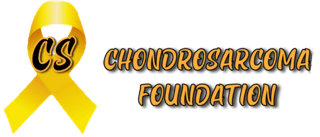A clinical trial for treating Metastatic Convention Chondrosarcoma
Testing the Combination of Belinostat and SGI-110 (Guadecitabine) for the Treatment of Unresectable and Metastatic Conventional Chondrosarcoma
This phase II trial studies the effect of belinostat and SGI-110 (guadecitabine) combination therapy in treating patients with conventional chondrosarcoma that cannot be removed by surgery (unresectable) and has spread to other places in the body (metastatic). Belinostat may stop the growth of tumor cells by blocking some of the enzymes needed for cell growth. Chemotherapy drugs, such as guadecitabine, work in different ways to stop the growth of tumor cells, either by killing the cells, by stopping them from dividing, or by stopping them from spreading. Giving belinostat in combination with guadecitabine may lower the chance of unresectable and metastatic chondrosarcoma growing or spreading.
PRIMARY OBJECTIVE:
I. To conduct a phase 2 clinical trial to evaluate whether combination treatment with belinostat and SGI-110 (guadecitabine) shows preliminary evidence of clinical activity in unresectable or metastatic conventional chondrosarcoma (CS) using an objective response rate endpoint.
SECONDARY OBJECTIVES:
I. To evaluate the toxicity profile associated with the combination treatment. II. To evaluate the progression free survival (PFS) associated with the combination treatment.
CORRELATIVE OBJECTIVES:
I. To determine the IDH1/2 mutational status of subject’s tumors and to evaluate for a relationship between presence of IDH1/2 mutation and clinical benefit from study treatment.
II. To conduct ribonucleic acid sequencing (RNAseq) analysis using baseline and on-treatment tissue biopsies to study the effects of study treatment on CS gene expression patterns and identify candidate genes which may underlie treatment efficacy.
III. To evaluate for changes in global deoxyribonucleic acid (DNA) methylation levels using baseline and on-treatment biopsies and correlate changes in global methylation with clinical benefit from study treatment.
IV. To use multiplex immunohistochemistry to interrogate the immune microenvironment in baseline and on-treatment tissue biopsies to define changes in infiltrating immune cell subsets and PD-L1/major histocompatibility complex (MHC) expression by immune and tumor cells associated with study treatment.
OUTLINE:
Patients receive guadecitabine subcutaneously (SC) and belinostat intravenously (IV) over 30 minutes on days 1-5. Cycles repeat every 28 days in the absence of disease progression or unacceptable toxicity.
After completion of study treatment, patients are followed up every 3 months for 24 months.
For more informatiom:
